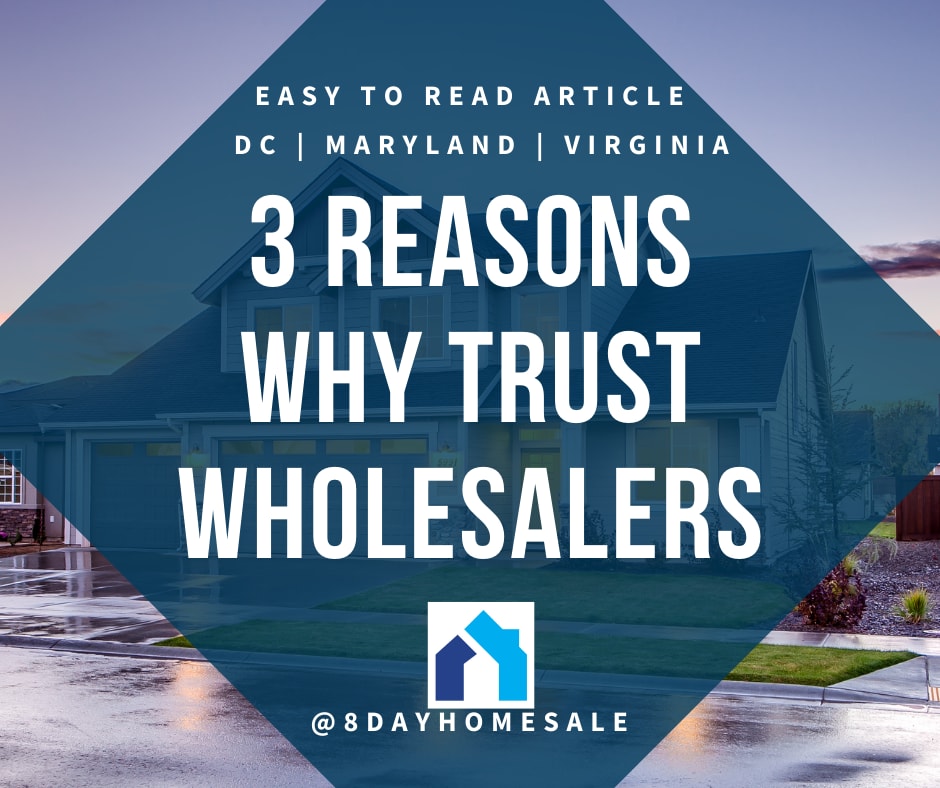WHAT DOES IT MEAN TO SELL AS-IS?
An as-is sale means the homeowner is selling a home in its current state. A buyer should not expect the owner to make repairs or improvements before the sale, but rather accept the home in its present condition.
Some potential buyers who see “as-is” house sales consider it a warning of potential issues down the road.
But others, like investors or wholesalers, see it as an opportunity. People are attracted to as-is homes because buyers and purchasers save money. Sellers can also sell the house quickly and avoid unnecessary stress in the home selling process.
WHY SELL YOUR HOME AS-IS?
There are several reasons why sellers list their homes as-is without making improvements or updates. Perhaps they inherited a home and want to unload and liquidate it fast. Maybe there are too many repairs than the seller can afford. Or maybe they just want to move on with their lives and start looking elsewhere for a fresh start. In any case, an as-is sale typically requires a cash buyer, as certain maintenance or repair issues the house would preclude it from qualifying for a mortgage.
REPAIRS YOU OFTEN MUST MAKE
Your buyer’s financing may depend on you fixing certain serious issues. The lender may ask you to pay for electrical or plumbing issues or a new roof before the buyer gets the loan. If the buyer can’t get a mortgage, they can’t buy your house.
Other repairs that you may be asked to do include
- Building code violations
- Structure defects: foundation, walls, support structures
- Termite damage
- Bats or squirrels in an attic
- Leaking roof
- Outdated or unsafe electrical wiring
- Water supply issues, such as a well
- Electrical systems
- Mold and mildew
- Broken pipes or major plumbing
WHO BUYS HOMES AS-IS?
Buyers investing in as-is properties should expect to inherit any problems that may come with a home in need of repairs. A buyer must sign a document that makes it clear that they understand they type of home deal they are getting into. However, the buyer still has legal rights to know the same information that the seller knows when moving forward with the sale. As a result, if there are any known problems, the seller is obligated to disclose them.
WHAT TO KNOW BEFORE SELLING YOUR HOME AS-IS
Even when selling a home as-is, sellers are still required by law to disclose any defects about the house. If a seller purposely withholds known information about the issues regarding the house, they may incur legal liability if the problems surface down the road. Disclosable flaws include lead, sewer damage, sinkholes, and flooding. However, disclosure requirements vary state-to-state, so be sure to check local state laws for necessary disclosure information.
In addition to making sure to disclose all relevant information about the property, as-is home sellers should expect to have to negotiate on the price. Even in an as-is sale, the buyer still has the ability to negotiate the final sale price with a counteroffer. As-is does not mean a buyer will never ask for repairs or compensations after an inspection. In fact, this type of negotiation is typical in all home buying processes.
If you’re considering selling your home as-is, here are some tips to help you make sure everything goes smoothly:
- Obtain a Pre-listing Inspection
An inspection will tell the seller what they need to know about the house before they sell the house as-is. Getting a pre-listing inspection allows sellers to know what to disclose about the house’s condition and learn everything about the house before selling it. An inspection can help sellers decide what improvements and upgrades to make before putting the home on the market.
Additionally, a pre-listing inspection allows the seller to seek estimates for repairs needed so the seller can properly inform a prospective buyer about what may need to be done to the home. Some buyers will find the most expensive estimate on improvements needed as a bargaining chip for the final sale price. If a seller completes their own estimates, they will be in a better position to counter a buyer’s numbers. This will give the seller better negotiating power over the purchase price.
- Make a Few Home Improvements Anyway
Cash home buyers are spending a significant amount of money on buying a house as-is house payment. The money that remains for repairs may be limited, particularly if they are real estate investors seeking to make a profit on re-selling the home. Making improvements to a home being sold as-is will result in a higher purchase price for the home, and are likely to cover the costs of the improvements in the first place.
Cash home buyers expect an as is home to need cosmetic fixes. With that said, it may be cost effective to do some minor renovations to improve the curb appeal of the home. Also, buyers are usually turned off from purchasing a home with major structural issues, like plumbing or roof damage. If you do consider making home improvements to an as-is home, just do the important home improvements. Common home improvements for as-is homesales include:
- Replacing the roof,
- Updating the electric panel,
- Installing a new water heater,
- Addressing any pests, mold, or water damage,
- Repairing pipes, sewer connection, or septic system, and
- Updating the HVAC system.
If a seller is willing to do these types of repairs, they are likely to land a higher purchase price at closing. This can help you sell a house quickly. Of course, an as-is seller always has the option to skip renovations altogether if appropriate for their budget and timeline.
- Try Your Hand at Marketing
Marketing will help sell a house quickly. Doing some research and outreach will help you target the right kind of cash home buyer or investor. Make your listing description attractive. Tell the buyer all the great and accurate things about the home and paint them a picture that they can imagine themselves appreciating.
Rather than focusing on the as-is condition of the home, share about the positive aspects of the property. As-is sales are expected to need improvements, so be sure to discuss things like location, lot size, floor plan, and any unique features that may catch a buyer’s eye. Any of these elements can be great selling points.
And of course, make sure the sale price is reasonable. Do some research on the comparable prices are for your market and price your home accordingly. Recent sales of similar homes in similar neighborhoods will give you a good idea of what to price your home at. In an as-is sale, both the buyer and the seller know that repairs will be necessary. So do not try to up the sale price unreasonably – this will only cause your home to sit on the market unsold.
If you’re considering an as-is homesale so that you’ll sell the house quickly, consider working with 8 Day Home Sale. We’ll make a cash offer to buy your house in as-is condition, no repairs or cleanup needed. We’ll even help you move! Contact us today for a free, fair cash offer – we look forward to the opportunity to work with you Maryland, Washington, DC, and Virginia!




